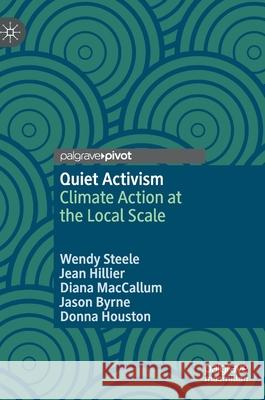Quiet Activism: Climate Action at the Local Scale » książka
topmenu
Quiet Activism: Climate Action at the Local Scale
ISBN-13: 9783030787264 / Angielski / Twarda / 2021 / 166 str.
Kategorie:
Kategorie BISAC:
Wydawca:
Palgrave MacMillan
Język:
Angielski
ISBN-13:
9783030787264
Rok wydania:
2021
Wydanie:
2021
Ilość stron:
166
Waga:
0.36 kg
Wymiary:
21.01 x 14.81 x 1.12
Oprawa:
Twarda
Wolumenów:
01
Dodatkowe informacje:
Wydanie ilustrowane











